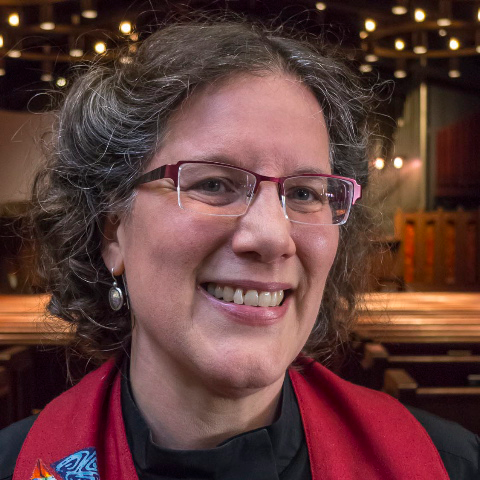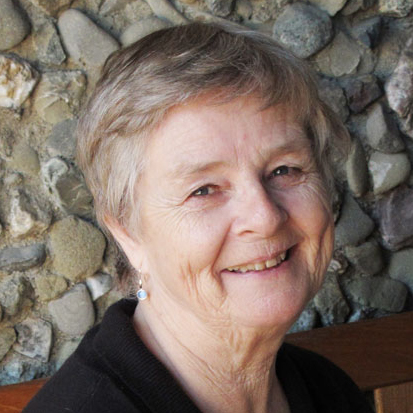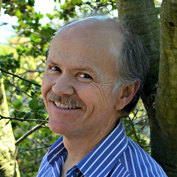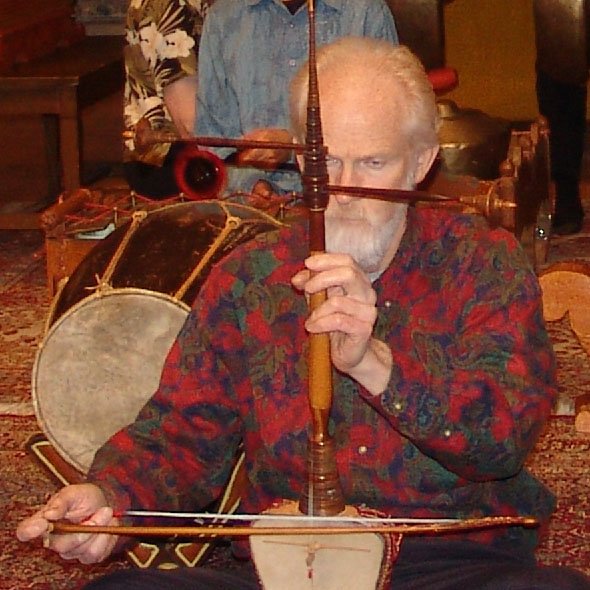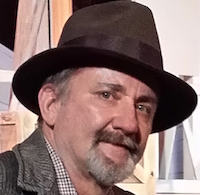Audio
{podcast_episode 223}
Video
REFLECTION:
Writing in the margins of that morning’s paper which had been smuggled into the tiny jail cell where he was being held, Dr. King began his response. The article on the front page – the reason why a friend smuggled in the paper – could not go unanswered. It was written the day before by eight white influential leaders of the city he was visiting.
The article, entitled simply “A Public Statement by Eight Alabama Clergymen” criticized Dr. King’s methods, labeled him as an outsider, and called his vision ‘unwise and untimely.’ King knew the aim of those clergymen was to defend the status quo – a resistance to social change, attempting to turn away outside agitation, slow down what momentum was building toward liberation and civil rights, returning some degree of moral authority to those with ‘legitimate’ power – which is to say, those for whom the law was written and currently favored.
Dr. King’s vision – which, only four short months later would become a ‘Dream’ that would rock the world – Dr. King’s vision was of inclusivity – a world where rights were expanded and extended beyond a privileged majority distinguished by race. His vision – and the power it was developing – was the reason he’d been arrested the day before. Laws had been quickly written, imposed and enforced to protect a public well-adjusted to the status quo from public demonstrations. Dr. King’s vision was one of justice and prompted ‘the creatively maladjusted to engage in civil disobedience.
From inside his cell, within the margins of the morning paper, Dr. King began with the words, “I think I should tell you why I am here in Birmingham…”
SERMON: “A Vision for the Creatively Maladjusted”
“I think I should tell you why I am here in Birmingham…” Dr. King wrote.
“I am here [in Birmingham]… because I was invited here…”
“I am here [in Birmingham]… because… [as] president of the Southern Christian Leadership Conference… I have organizational ties here in Birmingham…”
“But [more importantly], I am here in Birmingham, because injustice is here in Birmingham.”
“I am in Birmingham because injustice is here in Birmingham…”
What an interesting way to start a sermon when the theme of the month is ‘hospitality.’ About someone showing up in a time unexpected in a place he’s unwelcome with a message that’s unappreciated by a host that’s inhospitable.
I start with Martin Luther King, Jr.’s Letter from a Birmingham Jail because 52 years ago, it awoke the social consciousness of an ethical nation caught asleep in its own hour of calling. But more than that, it awoke the creative imagination of a world ready to pen a new chapter of its own evolution. Dr. King’s letter is often cited by political and social theorists as one of the best examples of vision invoking and mobilizing change. Shortly after writing it Dr. King was named TIME magazine’s man of the year. He was given the Nobel Peace Prize. It’s credited as inspiring the work of Nelson Mandela and the antiapartheid movement. Quotes from it are found throughout Bishop Desmond Tutu’s sermons. It was translated and disseminated to liberation leaders in Poland, Romania and Eastern Bloc countries as they sought equality and freedom during the cold war. It has even been said to have been the most comforting and inspirational possessions of reggae singer, Bob Marley who carried it with him everywhere he went.
To understand why, it’s important to understand the dynamics of social change. By that I mean, shining some light on what helps determine cultural evolution. Study the underlying reasons why any movement for equality or freedom succeeds or fails… or, conversely, why any form of tyranny or oppression remains the law of the land or is overthrown.
The obvious answer we all know, of course, is power. Who has it… how they use it. Power determines the future.
And, if we’re completely honest, we’d have to admit its power that determines our history – since it is generally the practice of those with power that rewrite the accounts which led to their prominence.
But we have plenty of power in the world today. Why don’t we have equality and freedom?
Let me share a little bit about what I’ve learned over the last six years working for social change on issues like Marriage Equality, Immigration, Environmental Climate issues, Occupy and Wealth Distribution.
The first thing that’s imperative to understand that in every scenario where the future is being determined there are always three seats of power at the table. The table may have many people around it – but they all generally fall into one of three places.
In one seat is the power of money. Business. Corporate interests. Jobs. Opportunity. Assets. Trade. Wealth.
Another seat is reserved for political power. Laws. Infrastructure and civil agreements. Policy and regulation on banking, commerce and taxation for the common good. Rights to public land, resources and capital.
And then, there is the power of the public. The general citizenry. The workforce. The consumers. The social and moral narrative of those who live in the margins. Those who Dr. King speaks for when he responded to those eight clergymen. The people.
With only a little thought, it’s easy to see how these three loci of powr fit together. We need private enterprise to respond to material need, for innovation, to provide useful work. We need a political system to broker the social contract, keep the peace, and provide basic goods and services a civil society needs to function.
But ‘We the People’ – the public – are the lynchpin. We provide the flow of consumer currency that the financial powers depend on. We determine the voting constituency for political representatives to acquire and maintain power. We actually hold a tremendous amount of power – WHEN we organize. WHEN we hold a vision and WHEN we have the discipline to keep other sources of power accountable.
When we DON’T…
When the organization and vision of the public falters, and we fail to amplify the voice of the people at the table
- We fail to keep the private sector accountable. Without public pressure, private interests will seek profit without ethics, pursue unsustainable consumption of natural resources without regard for the environment or those who depend on it. We invoke a spiraling unsustainability. Unregulated banking and trade practices resulting in the frighteningly rich and the frighteningly poor.
- Without public pressure, the political sector becomes corrupt through lobbyists. “Public servants” fall under the payroll of private interests. We become more partisan in our policies and regulation. We see paralysis in civil discourse. We experience gridlock in legislative response.
Nothing, today, strikes me as more critical in the evolution of civil society as organizing the public toward a vision calling corporate and political interests to moral scrutiny. As corporate power runs rampant, drunk on excess; and political power appears morally impotent, buying and selling politicians through election financing; a public voice – a vision of a democracy of the people, by the people, for the people – is imperative. But from where will it emerge?
Once upon a time it was the church who called for moral accountability in the distribution of power. It was the church which organized people in a collective effort to bend the moral arc of the universe toward justice.
But over the decades the church has fallen asleep. Hypnotized by the shortsighted vision of personal salvation over collective justice, for the ‘Beloved Community’. The world of religion has the same myopic tendencies today as it did 50 years ago. The vision Dr. King once offered has been lost. Listen to his response to the seven clergymen when they asked him to wait, reassuring him that the church’s prayers would be enough… the courts would eventually do the right thing.
“I have traveled the length and breadth of Alabama, Mississippi and all the other southern states. I have looked at the South’s beautiful churches with their lofty spires pointing heavenward. I have beheld the impressive outlines of her buildings. Over and over I have asked: “What kind of people worship here? Who is their God?
“[Too often I have seen that] the contemporary church is a weak, ineffectual voice with an uncertain [response to the problems of the world]. Too often it settles for becoming an arch defender of the status quo. Far from being disturbed by the presence of the church, the power structure of the average community is consoled by the church’s silent and often even vocal sanction of things as they are.”
Once upon a time, the people could rely upon journalists to wake up the social conscience of society and prompt it toward justice. Once upon a time, we could count on the media to inform and educate the people to act in their own common best interests.
But today, we’ve long since sold our once impartial, un-polarized journalism to the highest bidder. Today most every primary source of information and news media we get today is owned and biased by corporate business interests.
So now we get FOX news – and other sources of titillating alarmist rhetoric. They provide enough crime and humor and human interest stories in a 22 minute news-entertainment infomercial to cultivate a viewership addicted to a low level of chronic anxiety – not enough to incite revolution but enough to minimize trust and discourage any real creative collaboration between neighbors.
The media today no longer belongs to the people and so has no interest in informing and organizing the public. Quite the contrary, media today seeks a weak and disoriented public… essential for private enterprise to maximize power – and profit. And politicians whose vision has been purchased campaign to get rid of public media altogether. It’s not about ‘Big Bird’ and public media costing the people too much. It’s about Big Money caring about the public’s right for unbiased information too little.
<><><>
Some of you might have read the latest book by Unitarian Universalist Minister and historian, Mark Morrison Reed called, “The Selma Awakening.” Morrison Reed chronicles the events Selma and describes how they not only briefly awoke and partially changed the world but how they briefly awoke and partially changed Unitarian Universalism. Not completely changed, for although both racial justice and Unitarian Universalism road the coattails of the civil rights movement to go as far as the Mountain top, neither finished the journey to the Promised Land. Despite sending nearly 500 Unitarian clergy and lay leaders to Selma. Despite the public outcry over Unitarian minister James Reeb being beat to death. Despite Dr. King doing his eulogy. Despite how that all helped create the urgency to pass the Voting Rights Act. Despite all that – society is still a long way away from racial equality and we are still a long way from being the kind of liberating change agents we want to be.
Now, 50 years later after Selma, we are trapped in the same statistical quandary where young black men receive lower standards of education and healthcare. We mourn the loss of young black men shot on the street without recourse. We fail to alter the reality that there are more young black men in prison than in college. We still see the problems. But we summon no vision for the solutions.
When I ask Mark about all that was left undone, he shrugs his shoulders. Mark Morrison Reed is a big man with a powerful vision and voice. But he also has a tender heart and I know that the injustice unanswered breaks his heart. Though they were both called on, racial equality wasn’t realized and Unitarian Universalism didn’t fulfill the promise.
Another reason I know it is heartbreaking for Mark is the quote he is most known by. #580 in our hymnal if you’re looking for it. He says, “It is the church that assures us we are not struggling for justice on our own…” What assuring message of justice does Unitarian Universalism have to offer the families of Michael Brown, Eric Garner, Tamir Rice, Trayvon Martin…?
It is true that the church can – and does – provide comfort in response to tragedy. Solace to those who are heartbroken. It is true that the church can and should teach resiliency. Create the brotherhood and sisterhood that can help us through hard times when things don’t always go our way. But the church drifts too far into its quest for comfort to make good on its goal of the transformation of society.
There is a saying that explains the reason why justice is delayed and why causes like racial equality fail to achieve their ends. People fall out of committed activism – indeed, fall out of church – for the same reason they fall out of bed… because they fall asleep too close to where they got in.
It’s interesting that Dr. King was invited and came to share just that message with Unitarian Universalists only a few years after Birmingham. A few months after Selma. Dr. King gave the distinguished Ware Lecture at the 1966 UUA General Assembly in Florida. In a speech entitled, “Don’t Sleep Through the Revolution,” he said this:
I would like to use as a subject the church remaining awake during a great revolution. I’m sure that each of you has read that arresting little story from Washington Irving entitled Rip Van Winkle. One thing that we usually remember about the story of Rip Van Winkle is that he slept twenty years. But there is another point in that story which is almost always completely overlooked: it is the sign on the inn of the little town on the Hudson from which Rip went up into the mountains for his long sleep. When he went up, the sign had a picture of King George III of England. When he came down, the sign had a picture of George Washington, the first president of the United States. When Rip Van Winkle came down the mountain and looked up at the picture of George Washington, he was amazed. He was completely lost. He knew not who he was. What is most striking thing about the story of Rip Van Winkle is not merely that he slept twenty years, but that he slept through a revolution. The face of human history had changed while he snored away. One of the great misfortunes of history is that all too many individuals and institutions find themselves in a great period of change and yet fail to achieve the attitudes and outlooks that the new situation demands. There is nothing more tragic than to sleep through a revolution.
<><><>
It is the mark of a good religion that it can help teach resilience. That it can offer patience and solace and peace of mind. But it is not a mark of either social or spiritual health to help people become well-adjusted to a sick society.
“Human salvation,” Dr. King said in his speech to the UUA “lies in the hands of the creatively maladjusted.” It’s important to know that when he said that he was talking TO us… ABOUT us.
We can do the work Dr. King set before us. But we cannot do it alone.
In the last 6 years, working for social change, I’ve discovered that the transformation of society is not the work of churches by themselves. It is the work of churches together.
Community organizing is the future of religion. It is about different churches with different religions of different people believing different things coming together to address shared concerned for the common good.
Community organizing – which is the work that CCISCO and GRIP are trying to teach us – is the work of finding our voice, claiming our seat at the table of power and holding corporate and political interests accountable.
It begins with asking ourselves – and our neighbors – ‘What makes you angry?’ and ‘What breaks your heart?’ Because if you know those things you’ll know what is worth staying awake and working for. And, you’ll know how to change the world.
But a lot of people are hesitant to associate anger or heart break with church. “Shouldn’t this be happy place?” “The world is filled with angry people,” they say. That’s why I come to church.”
To this assertion, I think of what Aristotle said:
“Anybody can become angry, that is easy; but to be angry with the right person, and to the right degree, and at the right time, and for the right purpose, and in the right way, that is not within everybody’s [understanding]… That is not easy.”
That’s why – I believe – we come to church. Not to expunge or ignore our anger. But to know how, when, why, where and with whom to share it in order that a greater love can be expressed. They may seem antithetical, but anger and love are not opposites – or even unrelated. Almost all anger emerges from unmet needs for love and care. It is apathy and ignorance, distractedness and disinterest that are the opposite of love. Not anger. So, when Dr. King warns us not to fall asleep, he is actually calling us to be in tune with love.
(D x V) + F > R
Some have seen me use this formula before where:
D = Dissatisfaction
V = Vision
F = First steps
R = Resistance.
So if we bring together the energy of what breaks our heart (Dissatisfaction) and we are able to make a clear declaration of what you plan to do – “I am here in Birmingham, because injustice is here in Birmingham” – (Vision), let people know it begins with one-on-one conversations until find your seat at the table of power (first steps) and put all this together so that it is greater than the eight clergymen who are telling you to stop (resistance).
That’s how power works in social change. That’s how we re-build a broken sense of hospitality. That’s how we follow the call of love and justice.







